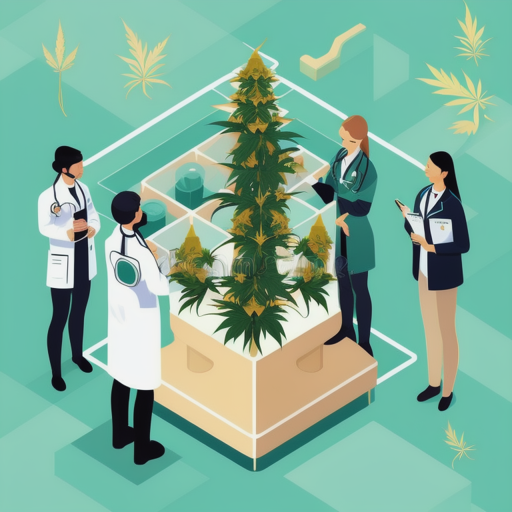What is Medical Cannabis
What is Medical Cannabis (Cannabis Based Medical Products)
What is Medical Cannabis? What is it used to treat?
Cannabis Based Medical Products (CBMPs) or Medical Cannabis are medications derived from the cannabis plant, containing cannabidiol (CBD) and/or Tetrahydrocannabinol (THC – which is the psychoactive substance in cannabis). In the UK medical cannabis has been legal since 2018 for the treatment of psychological, neurological, and chronic pain conditions as well as, palliative and/or end of life care: for sake of brevity a full list of conditions treated in the UK is highlighted in eligibility section of this website.
What’s the eligibility criteria?
With cannabis based medical products (CBMPs) being unlicenced, the census would be for patients to evidence unmet clinical needs i.e., their health is not improving despite having ongoing treatment or interventions via conventional healthcare services. It is important for all patients to recognise that due to cannabis containing a psychoactive substance, for the safety of potential patients, if you have any of the diagnosis listed in the exclusion criteria, you will not be eligible. We would advise these patients to liaise with their consultants at the NHS and explore an alternative treatment method to support their health needs.
Patients have a right to a second opinion, provided they do not have any counterindications listed in the exclusion criteria below. Patient’s must be over 18 years of age.
Exclusion Criteria?
Like all medications, CBMPs is not advisable to use if you struggle from one of the following: –
- Suffer with high BP (If this is not stable)
- History of psychosis
- Diagnosis of schizophrenia
- Heart condition (Which has NOT been stable for 6+ months)
- Pregnant or breast-feeding
What are the side effects of medical cannabis?
Side effects of CBMPs include:
- Drowsiness
- Confusion
- Imbalance
- Euphoria
- Diarrhea
- Dry mouth
- Anxiety and/or Depression
- Heart Palpitations
- Psychological Dependence
- Tolerance
- Cannabis hyperemesis syndrome (CHS)
Adverse reactions include:
- Headaches
- Migraines
- Nausea
- Vomiting
- Diarrhoea
If you experience an adverse reaction, it is important that you report your symptoms to the MHRA via yellow card, who are the medicines and healthcare products regulatory agency. To report a yellow card, please follow this link and fill out the form: Yellow Card | Making medicines and medical devices safer (mhra.gov.uk). It is also vital that you inform your clinic, to ensure this medication is not prescribed to you again in the future.
Cannabis dependence:
Cannabis dependence is known clinically as cannabis use disorder, and user’s of any form of medicines, including medical cannabis are prone to psychological dependency.
Signs of Psychological dependence include:
- Not using medications as prescribed -> using more than required or larger dosages and/or more frequently
- Withdrawal
- Developed a tolerance and require more
- Failed repeated attempts to control or stop use
- Physical or psychological concerns related to use (i.e., respiratory concerns or fluctuation in mood)
- Missing relevant appointments or work to use
- Craving for purposes other than prescribed
If you experience any of the following, please get in touch with your prescriber, so that they may manage this concern accordingly.
Cannabis Hyperemesis Syndrome (CHS)
Cannabis hyperemesis syndrome, also known as cannabinoid hyperemesis syndrome, can affect people who are exposed to prolonged, high doses of cannabis: this can also occur with medical cannabis use.
Signs of Cannabis Hyperemesis Syndrome include:
- Intense nausea and vomiting
- Projectile vomiting (can happen without warning, up to 5x an hour)
- Extreme Diarrhea
- Lack of appetite
- Weight loss
Although this is uncommon, if you experience any of the following, please reduce use or stop where possible and urgently alert your prescriber. If symptoms are uncontrollable, please seek urgent medical intervention as you are at risk of dehydration.
Monitoring BP / Warfin prescription
Medical cannabis can for some people cause heart palpations, it is important that people with a history of high blood pressure or a heart condition to be mindful of this, particularly those on warfarin as cannabis can impact the liver enzymes, interacting with other medications. It is important that you work alongside your GP and relevant health care professionals to adequately address your heart.
If you are someone who meets this criterion, regularly monitoring your blood pressure would aid in ensuring your safety and enables you to appropriately reach out for support.
Blood pressure guidance:
| Low | 90/60 or below | Inform GP and clinic, if unwell seek medical attention |
| Ok | 90/60 – 140/90 | Continue to monitor – update clinic at FUP appointment |
| Raised | 141/91 – 179/119 | Raised, monitor and inform GP and clinic |
| High | 180/120 or more | Significant risk, needs urgent review – update GP and clinic |
What is Medical Cannabis Read More »



